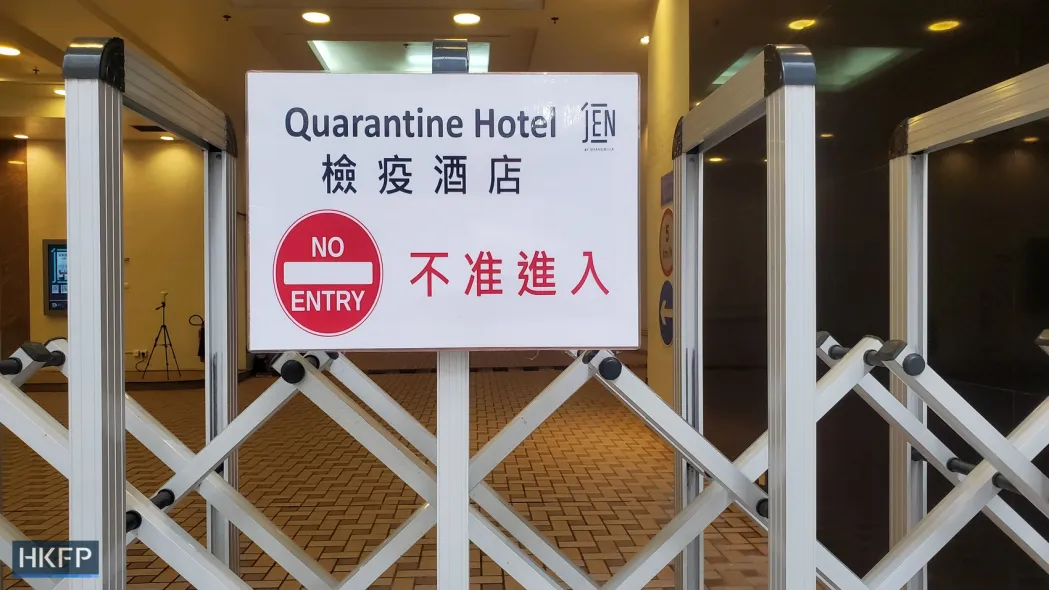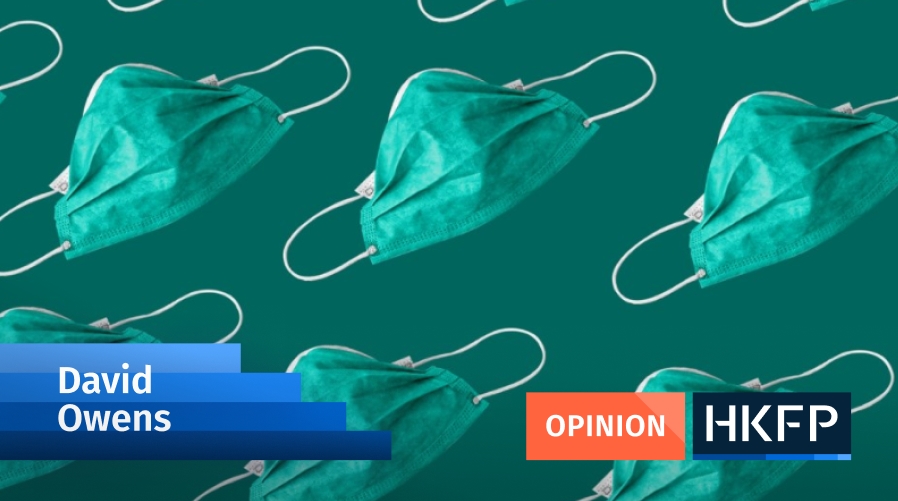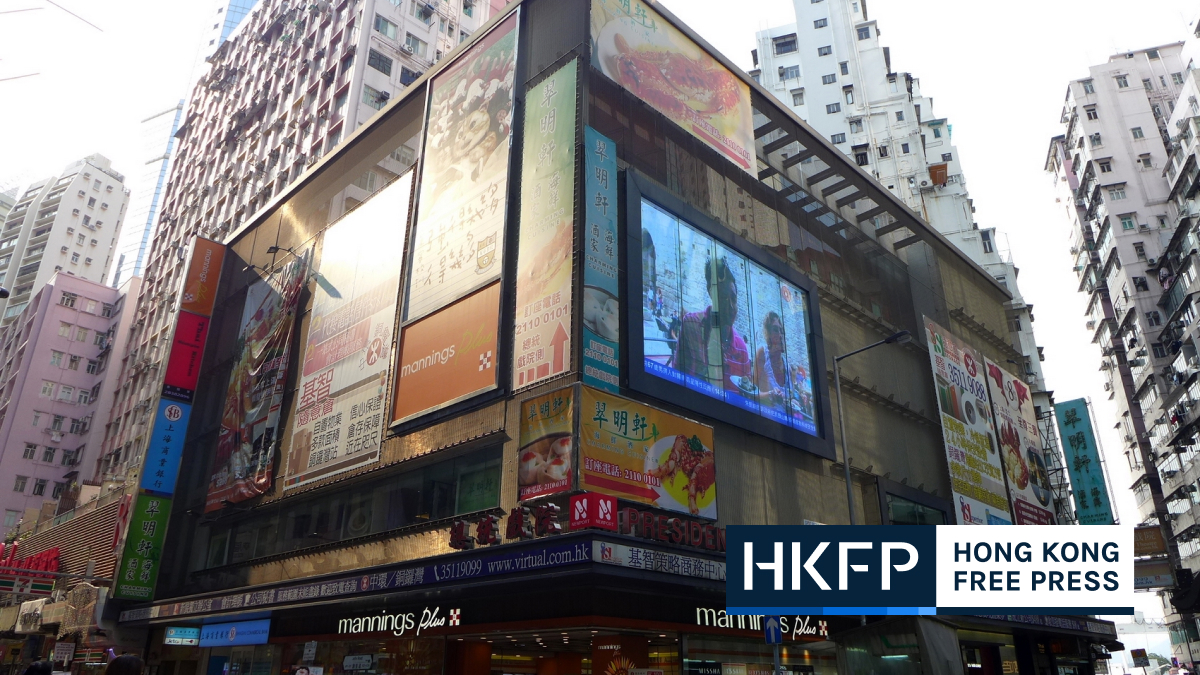Hong Kong will accept up to 50,000 mainland visitors per day via its land ports from Sunday, when China scraps most of its Covid-19 travel restrictions and reopens to the world after almost three years.

Four border checkpoints – land crossings at Lok Ma Chau Station and Man Kam To, and sea ports at the Macau Ferry Terminal and China Ferry Terminal – will resume operations on Sunday, Chief Executive John Lee said during a press conference on Thursday. Visitor quotas will be allocated online on a first-come-first-served basis.
All cross-border travellers must obtain a negative result from a Covid-19 PCR test – both physical or electronic proof will be accepted – taken within 48 hours of travel, Chief Secretary Eric Chan said during the same press briefing.
Breaking down the 50,000 daily quota, Chan said the Lok Ma Chau checkpoint would be allocated the largest number of spots for travellers coming to Hong Kong from the mainland, with a daily cap of 35,000. The Shenzhen Bay and Man Kam To checkpoints will have daily quotas of 10,000 and 5,000, respectively.

Meanwhile, there will be a daily quota of 60,000 visitors from Hong Kong to the mainland.
Hong Kong residents returning to the city from the mainland, and mainland residents in Hong Kong travelling north, will be exempt from the daily quotas.
The booking platform for travellers in Hong Kong going to the mainland will open on Thursday evening, the officials said. Slots for the first eight weeks – from Sunday to March 4 – will be available for booking on a first-come-first-served basis. The platform will refresh with an additional week opening up every Sunday.
Those making the booking can do so for themselves and three others making the same trip. The platform will provide three time slots for each checkpoint.
Chan said that authorities would gradually increase the daily quotas after reviewing the measures.
Cross-border students in the mainland will also be allowed to come to Hong Kong for in-person classes after the Lunar New Year, Chan said. They will be exempted from the quotas.
“I would like to thank the central authorities for making arrangements for the orderly and gradual reopening of the border,” Lee said.
High-speed rail to resume services soon
Transport secretary Lam Sai-hung said the high-speed rail connecting Hong Kong and Shenzhen will restart “no later than January 15.”
“[I] hope everyone understands that the high-speed rail stopped services almost three years ago… time is needed to prepare [for its resumption],” Lam said. “[Workers also] need time to familiarise themselves with the operations and the railroad situation from Hong Kong to Guangzhou to ensure safety,” he added.
Impact on healthcare system
Health secretary Lo Chung-mau assured the city that the border reopening would not pose undue burden on local medical facilities. The mainland is experiencing an unprecedented wave of infections, with reports of hospitals and crematoriums being overwhelmed following the abrupt scrapping of stringent zero-Covid measures.
While non-Hong Kong residents will be able to pay to receive Covid-19 vaccinations at private healthcare providers, Lo said will not have access to free jabs at government centres.

“Non-Hong Kong residents coming to Hong Kong and receiving self-paid vaccines will not affect the… supply of jabs under the government scheme,” Lo said.
He added that although the city was experiencing a shortage of “some brands” of paracetamol, because there were more than 700 types of medication containing paracetamol, supply was steady.
“The government is actively buying and stocking up on the relevant medications to meet society’s demands,” Lo said.
Quarantine-free travel between Hong Kong and mainland China was suspended after the city recorded its first Covid-19 infection in January 2020. For years, both sides maintained some of the world’s strictest social-distancing and travel restrictions, with arrivals subject to mandatory quarantine and testing.

Hong Kong scrapped hotel quarantine in September, while China will lift most travel-related restrictions on Sunday.
Beijing announced on Thursday that visitors from Hong Kong would no longer be tested when they cross the border from Sunday. However, they will still have to obtain the negative PCR result and complete a health declaration form before travelling.
China will also resume issuing travel and business visas for mainland residents to travel to Hong Kong.
Hong Kong has recorded 2.7 million infections and 12,081 deaths since the beginning of the pandemic three years ago.
Additional reporting: Candice Chau
Support HKFP | Policies & Ethics | Error/typo? | Contact Us | Newsletter | Transparency & Annual Report | Apps
Help safeguard press freedom & keep HKFP free for all readers by supporting our team
















